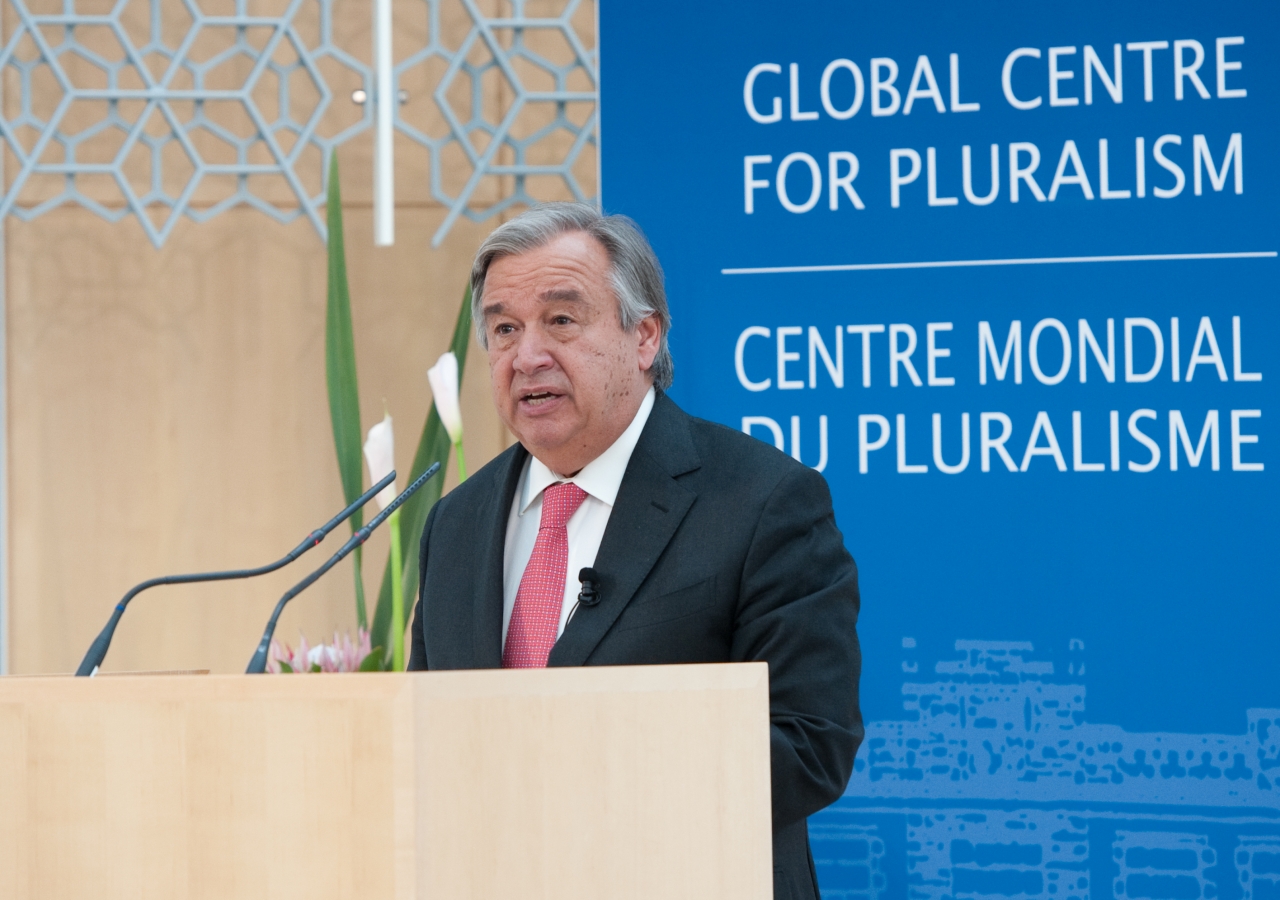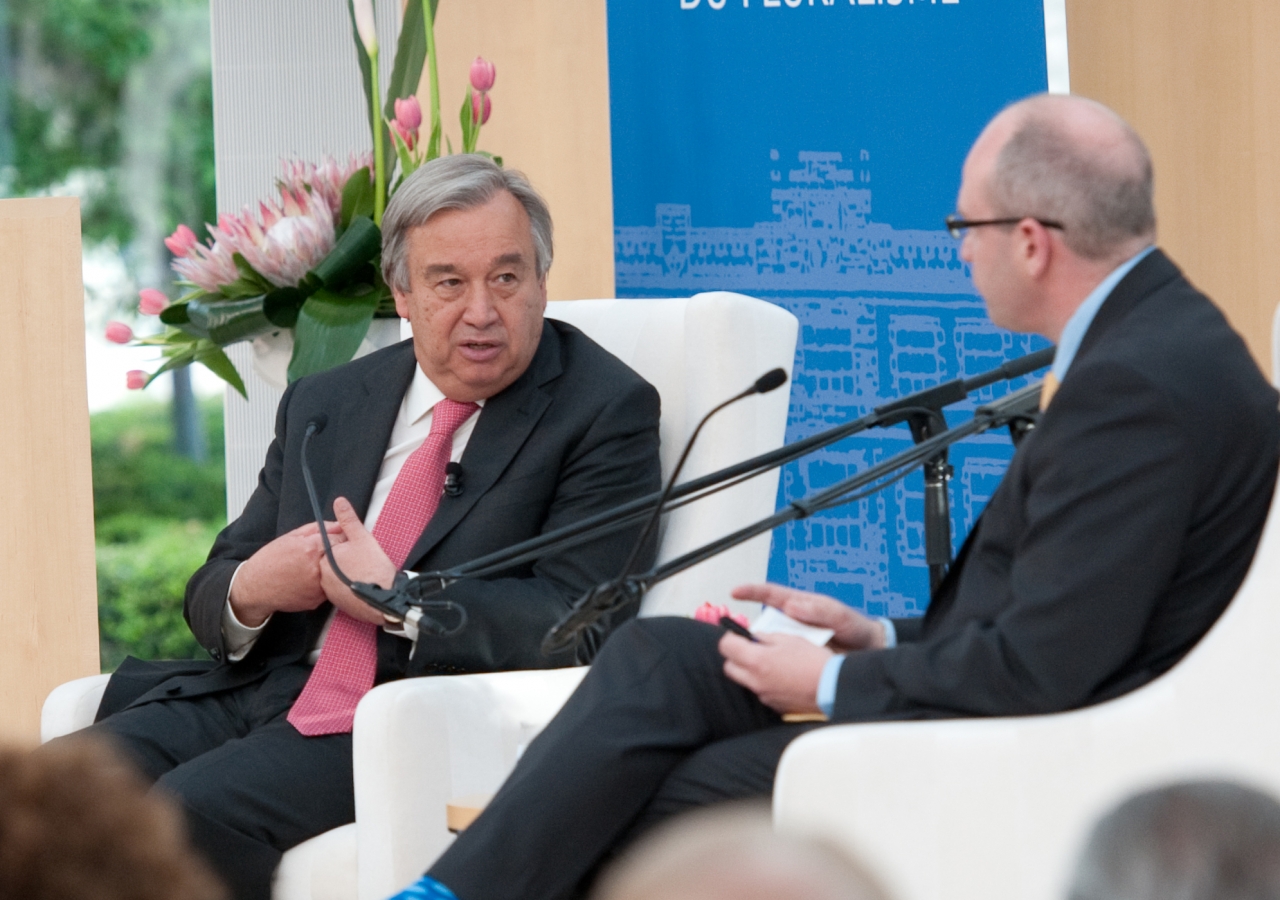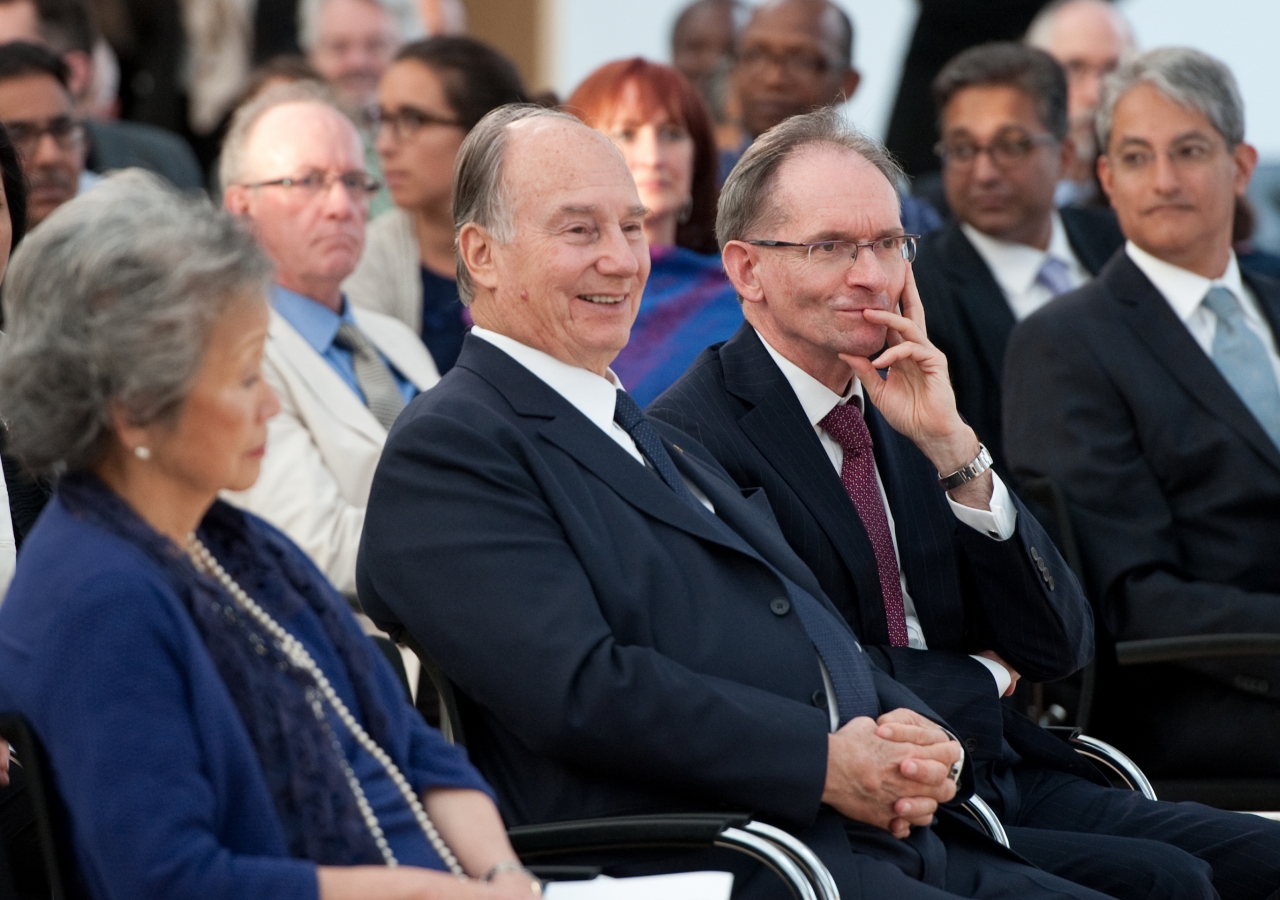The growing diversity of populations in countries around the world is a fact, according to António Guterres, yet for some it is a source of discomfort. In many countries, the stoking of fears to obtain votes and to sell “infotainment” is “creating artificial divisions, disrupting social cohesion and, in extreme cases, provoking persecution and conflict,” he says.
The United Nations High Commissioner for Refugees shared his perspective at the Global Centre for Pluralism's 2014 Annual Pluralism Lecture, which he delivered last week at the Delegation of the Ismaili Imamat in Ottawa. The third in a series, the Centre's annual lecture offers an important platform to leaders in pluralism who are making a difference in the world.
“Immigration is not part of the problem of modern societies,” asserted the High Commissioner, “it is part of the solution. Without immigration many of our communities would become completely unsustainable.”
Mawlana Hazar Imam introduced the High Commissioner, describing him as “a passionate and effective advocate” who has throughout his long career articulated “both the rights of the refugees and the responsibilities of society to support and to integrate them.”
Now in his second mandate as head of the UN refugee agency, António Guterres' concern for refugees stretches back decades. Thirty years ago, he chaired Europe's Parliamentary Assembly Committee on Demography, Migrations and Refugees, and in 1991 “he founded the Portuguese Refugee Council, the only national NGO in Portugal today that works exclusively for the benefit of asylum-seekers and refugees,” recalled Hazar Imam. Before becoming High Commissioner in 2005, he served as Prime Minister of Portugal for seven years.
“Irrespective of cultural, religious or ethnic differences, men and women around the world share a common humanity,” said Guterres. “Pluralism can be a powerful force that fosters more harmonious, peaceful and prosperous societies.”
The absence of pluralism, on the other hand, can trigger ethnic and racial tensions and sectarian conflicts, causing crises in which people are forcibly displaced from their countries of origin. The Ismaili Muslim community has endured such crises in times and places where the collapse of pluralism has led to the persecution of minority communities.
In August 1972, Ugandan president Idi Amin ordered all Asians to leave the country within 90 days, charging that Asians were exploiting the African country's economy. Tens of thousands – including many Ismailis whose families had been settled in the country for generations – were forced to flee Uganda as refugees, leaving behind their property, livelihoods and possessions.
The UN High Commissioner for Refugees at the time was Prince Sadruddin Aga Khan – Mawlana Hazar Imam's uncle – and he “played a key role in finding new homes, including here in Canada, for tens of thousands of South Asians,” recalled Guterres.
While a few Ismailis had migrated to Canada in the 1960s, the Ugandan exodus marked the community's first major settlement in the country. Twenty years later, Canada once again generously opened its doors to Ismailis – this time from Afghanistan – who were forced to flee brutal conflict and persecution in their homeland.
“Canada has a proud history of welcoming refugees,” noted High Commissioner Guterres. Lauding the success of the country's resettlement programme, which he described as “one of the largest in the world,” he called on Canada to assist refugees fleeing the current crisis in Syria.
“Only five years ago, Syria was the world's second largest refugee hosting country, now Syrians are the largest group of refugees worldwide,” said Guterres. Over the past three years, 3 million of its citizens have left the country.
“The overwhelming majority of Syrian refugees found safety in the neighbouring countries” like Lebanon, he said, where UNHCR recently registered the millionth Syrian refugee arriving in that country. But with “244 registered Syrian refugees for every 1,000 Lebanese, Lebanon already has the highest concentration of refugees [compared with] any other country.”
Founded in 2006 as a partnership between the Ismaili Imamat and the Government of Canada, the Global Centre for Pluralism (GCP) is an international institution for research and education that builds on Canadian and international experience. The Centre cultivates dialogue and fosters respect for diversity in policy and practice around the world.
Kenya and Kyrgyzstan are two current focal points of the Centre's work. After experiencing turmoil, both countries recently adopted new constitutions that decentralised power and identified respect for diversity as a core national value in response to severe ethnic conflict and violence.
In Kenya, the GCP has co-published a book of essays on Kenya`s potential for pluralism with the Katiba Institute, a civil society organisation that supports the implementation of the new constitution. In Kyrgyzstan, the Centre is engaging with Kyrgyzstani and international advisors to define its programme objectives and review its analysis of ethnic tensions in the country.
Eventually, the GCP will widen its research to more countries, and will use its permanent facilities in the former Canadian War Museum building to foster global learning and conversations about the foundations and benefits of pluralism. The Centre currently hosts other major events such as a Pluralism Forum through which it engages civil society leaders and the public, as well as the Annual Pluralism Lecture, which was inaugurated in 2012.










